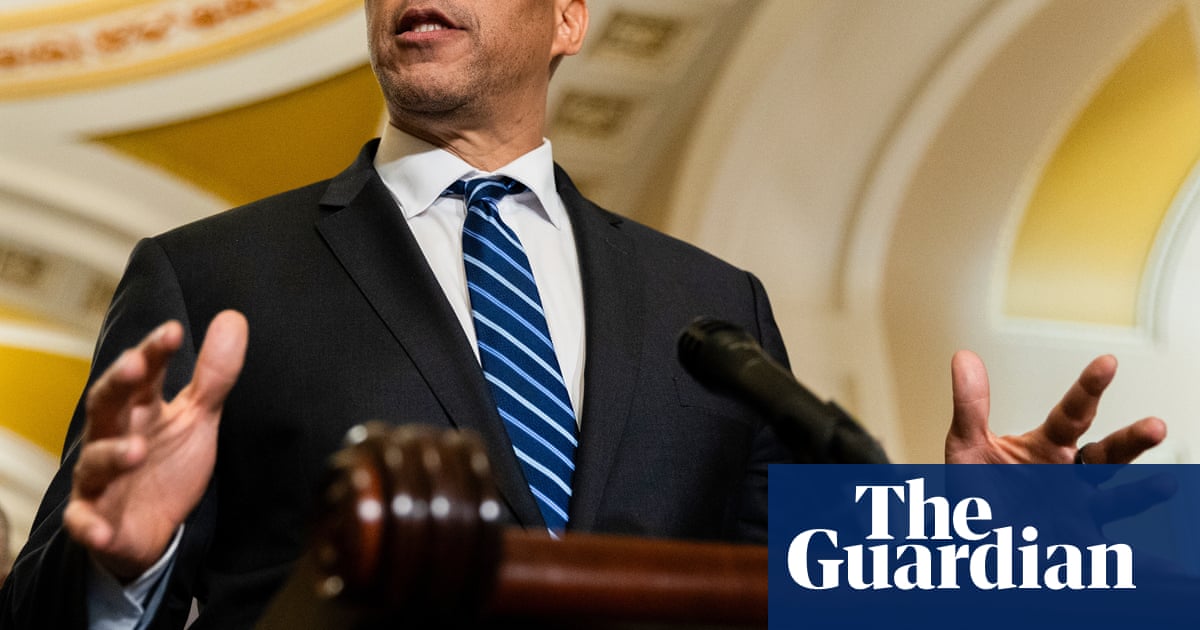Among the many rumors about President Donald Trump since his first term, one in particular seems to resurface even throughout his current and second term in office.
Critics are convinced the 79-year-old is illiterate, while others suspect he simply doesn’t read any executive order he signs because he “refuses to wear glasses.”
But there’s one historical White House moment that many point to as proof that “Trump can’t read.” During his February meeting with U.K. Prime Minister Keir Starmer in the Oval Office, Starmer presented Trump with a letter from King Charles, which contained an invitation for an “unprecedented second state visit,” which was the first time this had been done.
“Trump can’t read and two, I never thought I’d say: Good job, King Charles,” said a woman in a video circulating on Instagram. “The way that he handles it just proves that he cannot read.”
The short clip shows Trump being presented with the letter as he asked, “Am I supposed to read it right now?” prompting laughs from others in the room.
He then looks down at the letter for an extended period of time before he says, “Oh, that’s wow. Well, that is really nice.”
Trump continued, “Let’s make sure his signature is on that. Otherwise, it’s not quite as meaningful. That’s quite a signature, isn’t it? Beautiful man, wonderful man.”
He then turned the letter to others in the room to show them King Charles’ large signature on the bottom, before asking Starmer, “Perhaps you’d like to say what that very important paragraph is?”
Social media users as well as educators flooded the comments section of the Instagram post, claiming Trump reads at a “fourth grade level,” hence “why his academic record is sealed.”
One person said, “He looked at the paper and thought ‘yup those are words alright.’”
A few individuals made jokes about him needing Hooked on Phonics, which is a widely used education program designed to teach children how to read.
Another said, “Yeah, even Pete Davidson has a story when Trump was on ‘SNL’ he couldn’t really read the cue cards.”
One year after Trump’s guest appearance on “Saturday Night Live,” comedian and actor Pete Davidson exposed the president’s mental acuity.
“He doesn’t really know how to read, and he loves to improv,” Davidson stated during a 2016 interview on Opie Radio.
He explained Trump’s difficulty, noting that he even changed a few lines to include words that he “would’ve said” during an “SNL” table read about a Disney skit.
According to Davidson, the “Apprentice” boss should have just said, “OK, let’s get out of here. Turkey legs?” referring to food.
But instead, Trump fumbled, reading it as, “OK, let’s get out of here, turkey legs” — accidentally calling his daughter “turkey legs.”
“He doesn’t get it. He thinks everyone’s laughing with him, but we’re all laughing at him. It was, like, crazy.”
Another one of Trump’s former co-workers seemingly confirmed Davidson’s claim.
Claudia Jordan, who appeared on seasons 2 and 6 of “The Apprentice” reality competition series with Trump, recalled his struggles.
“When we used to work together he would never/ could never text. I think there’s some truth to this!” she wrote in the comment section of the Instagram post.
Trump’s intelligence was brought into question more recently during a speech in Iowa just before the July Fourth holiday.
While celebrating Congress passing his controversial One Big Beautiful Bill Act, the Republican politician revealed his nickname for his wife, Melania Trump.
“I call her ‘First Lady,’ isn’t it terrible?” he explained. “I’m saying, ‘Good night, First Lady, my darling,’ because it reminds me that I’m president, that’s why.”
“Oh yeah, his IQ is really up there!” responded one person on Facebook.
Despite being married to Trump for 20 years, Melania has always spoke highly of her husband’s intelligence.
“He’s tough. He’s smart. He’s a great communicator. He’s a great negotiator. He’s telling the truth,” Melania said at an April 2016 campaign rally in Milwaukee.
However, truth is not a word often associated with Trump.





